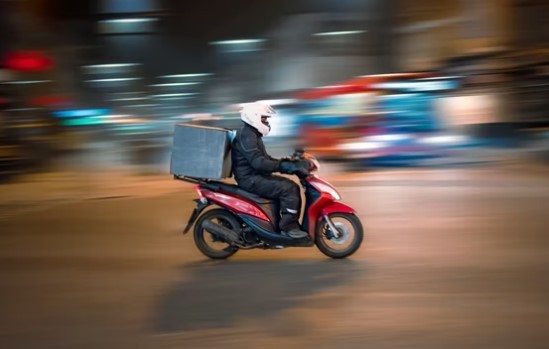From now on online food delivery platforms such as Swibby and Zomato will start collecting GST from consumers instead of the restaurants they pick up orders. The GST Council decision was revealed today on this matter.
Beginning of January 1, food delivery apps will have to collect and deposit the GST with the government, in place of restaurants, for deliveries made by them.
The GST Council, headed by the Union finance minister including representatives from all states and Union territories, has decided to charge services by cloud kitchens and food delivery platforms a 5 percent GST as GST is a levy on consumption.
GST Council Meeting New Recommendations 2021
Zomato and Swiggy will pay 5 per cent GST as GST is a levy on consumption after the GST Council decided to charge services by cloud kitchens and food delivery platforms.
“Food delivery operators like Swiggy who collect orders from restaurants and deliver (to customers)… the place where the food is delivered will be the point on which tax will be collected by the gig groups Swiggy and others,” Union finance minister Nirmala Sitharaman said on Friday after the meeting of the or Goods and Services Tax Council.
Revenue secretary Tarun Bajaj said the move will, however, not impact the end consumer. “There is no extra tax, there is no new tax. The tax was payable by restaurants, now instead of restaurants, the tax will be payable by aggregators which will also… prevent revenue leakage,” he said.
The GST Council also extended concessional tax rates on Covid-19 medicines, cut tax on cancer drugs and waived GST on import of highly expensive medicines for muscular atrophy, but will continue to keep petrol and diesel out of the uniform national tax regime.
“There has been a lot of speculation on whether petroleum products will be brought under the ambit of GST. I make it absolutely clear that this came on today’s agenda purely because of the Kerala High Court order where it suggested the matter to be placed before GST Council,” Sitharaman said while briefing the media after the meeting. “GST Council members made it clear they do not want petroleum products to be included under GST.
Speaking to reporters after the GST meeting, Revenue Secretary Tarun Bajaj clarified that no new taxes were being announced and that the GST collection point was simply being transferred.
“Suppose you order food from the aggregator… now the restaurant is paying taxes. But we found some restaurants were not paying. We are now saying that if you order the aggregator will collect from the consumer and pay to the authorities instead of the restaurant doing this…” he said.
“There is no new tax…” Mr Bajaj added.
Among other major decisions announced by the powerful GST Council on Friday was that petrol and diesel would not, at this time, be brought under the GST regime.
We will report to the Kerala High Court that the matter has been discussed and Council felt it was not the time to bring petroleum products under GST,” she added
GST New Rules: Measures for streamlining compliances in GST
Aadhaar authentication of registration to be made mandatory for being eligible for filing refund claim and application for revocation of cancellation of registration.
Late fee for delayed filing of FORM GSTR-1 to be auto-populated and collected in next open return in FORM GSTR-3B.
Refund to be disbursed in the bank account, which is linked with same PAN on which registration has been obtained under GST.
Rule 59(6) of the CGST Rules to be amended with effect from 01.01.2022 to provide that a registered person shall not be allowed to furnish FORM GSTR-1, if he has not furnished the return in FORM GSTR-3B for the preceding month.
Rule 36(4) of CGST Rules, 2017 to be amended, once the proposed clause (aa) of section 16(2) of CGST Act, 2017 is notified, to restrict availment of ITC in respect of invoices/ debit notes, to the extent the details of such invoices/ debit notes are furnished by the supplier in FORM GSTR-1/ IFF and are communicated to the registered person in FORM GSTR-2B.






